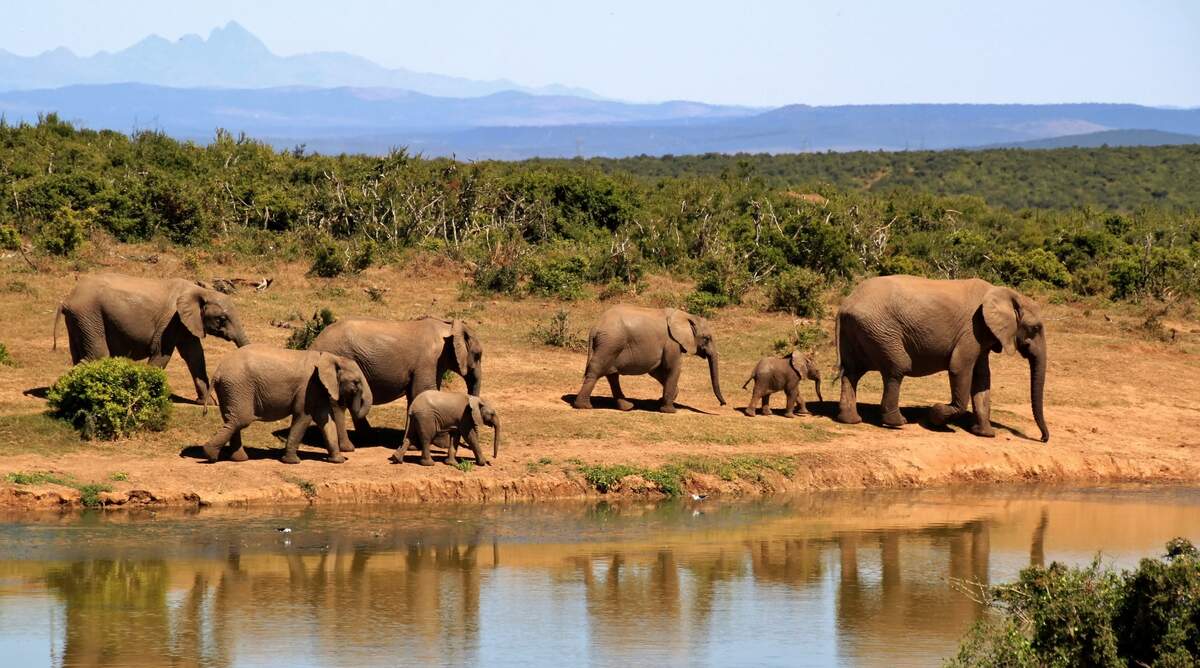

World Elephant Day
Observed
annually on August 12th (since 2012)
Dates
Founded by
Michael Clark in 2011
Patricia Sims in 2011
Elephant Reintroduction Foundation on August 12th, 2012
Hashtags
Sources
World Elephant Day asks everyone to "help conserve and protect elephants from the numerous threats they face" and "to experience elephants in non-exploitive and sustainable environments where elephants can thrive under care and protection." It is a day to express concern, share knowledge, and support solutions for the better care of captive and wild elephants; it is a day to honor elephants, spread awareness about the critical threats they face, and to support solutions to help ensure their survival. It brings "attention to the urgent plight of Asian and African elephants" and is "a vehicle by which organizations can rally together to give voice to the issues threatening elephants."
The day was thought up in 2011 by Canadian filmmakers Patricia Sims and Michael Clark, and by the Elephant Reintroduction Foundation, specifically by Sivaporn Dardarananda, the Foundation's Secretary-General. It was founded on August 12, 2012, by Patricia Sims and the Elephant Reintroduction Foundation, and first observed on that day. The Foundation is a non-profit that was started in 2002 as a Royal Initiative of Her Majesty Queen Sirikit of Thailand, and has the mission of acquiring captive elephants and reintroducing them to live as wild elephants in protected forest habitats. The day was created in part to celebrate the work of the Foundation. On the first World Elephant Day, Patricia Sims and Michael Clark released Return to the Forest, a documentary which focuses on the work of the Elephant Reintroduction Foundation.
World Elephant Day has partnered with many elephant conservation organizations, and countless organizations and citizens conduct campaigns under the auspices of the day. The day is supported by the World Elephant Society, which was founded in 2015 by Patricia Sims and others to manage the World Elephant Day campaign.
It has long been believed that there are two species of elephants: African elephants and Asian elephants. There are two different types of African elephants, the forest and savanna (bush), which are now viewed as being their own distinct species, bringing the number of elephant species to three. There are about 400,000 African elephants worldwide, and they are listed as being vulnerable by the IUCN Red List of threatened species. They are the world's largest land animals, weighing up to 22,000 pounds. With about 40,000 worldwide, the Asian elephant is listed as endangered. They are currently in 13 countries, and over the past half century their range has shrunk 70%. One out of every three Asian elephants is captive. At the beginning of the twentieth century, there were more than 100,000 Asian elephants in Thailand, but today there are less than 4,000. They are the second largest land animal, weighing up to 10,000 pounds.
Escalation of habitat loss, poaching, human-elephant conflict, and mistreatment in captivity are some threats elephants face. Elephant conservation organizations focus on protection for wild elephants, strengthening enforcement policies that work to prevent illegal poaching and ivory trading, conserving elephant habitats, improved treatment for captive elephants, and the reintroduction of elephants into natural, protected sanctuaries. On World Elephant Day, a concerted effort is made to conserve and protect elephants, so that they thrive on Earth for millennia to come.
How to Observe World Elephant Day
Some ideas on how to participate in World Elephant Day include:
- Inform others about the harm that is being done to elephants, and share your love and concern about elephants.
- Sign the day's pledge "to support a world that protects elephants, wildlife and their habitat." Get your friends to sign it as well!
- Donate to the World Elephant Society.
- Check for a World Elephant Day event to attend, or host your own event. Make sure to submit your event so others can become aware of it.
- Learn more about the Elephant Reintroduction Foundation.
- Watch Return to the Forest, When Elephants Were Young, or another documentary that focuses on elephants.
- Read a book that focuses on elephants.
- Visit the World Elephant Day store.
- Visit the day's Facebook page.
- Use #WorldElephantDay on Twitter and other social media in order to help spread information about the plight of elephants; use #BeElephantEthical to promote safe, ethical elephant tourism; and use #10DaysForElephants and take 10 actions in 10 days leading up to World Elephant Day. You could visit the World Elephant Day "Press Room" for Facebook cover photos, sample tweets and blog posts, and more.
- Refuse to buy ivory or other animal products, coffee that isn't fair-trade or shade-grown, or products with palm oil. (Such coffee and palm oil are often grown in plantations that first destroyed elephant habitats.)
- Visit or plan a trip to visit elephants in countries where they live in the wild.
- Learn about and support organizations that are helping elephants.





















